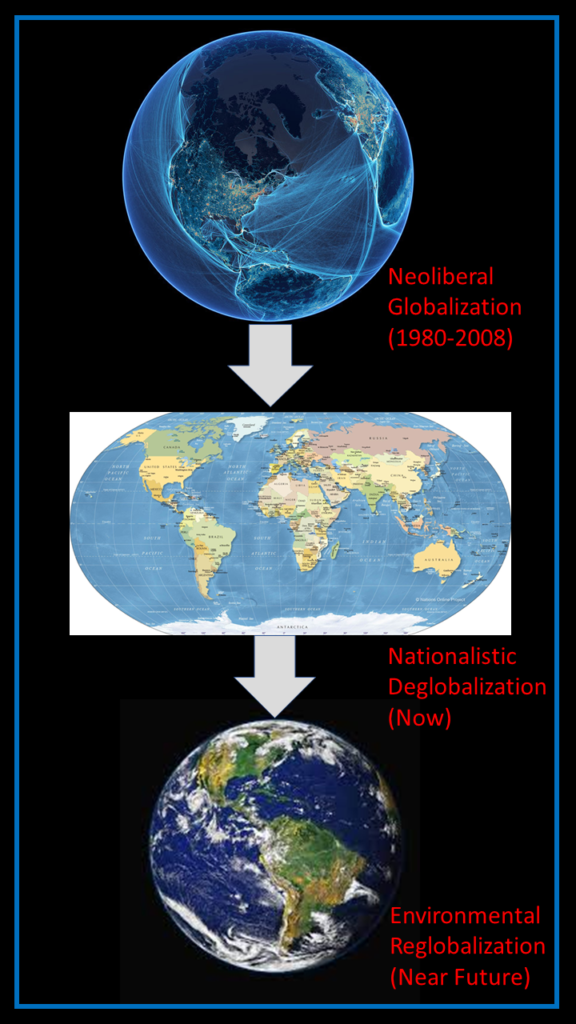David P. Turner / April 24, 2022
Globalization refers to the increasing interconnectedness of individuals and social groups everywhere on the planet, and to the increasing inability of any particular social group to isolate itself from outside influences. The process has geopolitical, economic, cultural, and environmental dimensions.
In this post, I am particularly interested in how globalization, and its follow-on stages of deglobalization, and reglobalization, impact the global environment (Figure 1).

Despite globalization’s significant detrimental impacts on the global environment – notably a large stimulus to growth in the global Gross Domestic Product and associated greenhouse gas emissions – it has also had significant beneficial effects on the global environment, e.g. progressive environmental standards have been widely promulgated, and a global environmental governance infrastructure has begun to function.
However, globalization is currently in retreat, and any possible environmental benefits from it are in jeopardy. Causes of the current wave of deglobalization include: 1) the economic suffering imposed on workers in the most developed countries by globalization of the labor market (which has inspired efforts to reduce imports of manufactured goods), 2) the psychological shock of juxtaposing very different cultures (e.g. secular vs. religious) made possible by modern transportation and communication technology (hence leading to revivals of xenophobic fundamentalism), and 3) the political benefits to autocratic leaders from rousing nationalist fervor (hence leading to outbreaks of war, as in Ukraine).
The rise of nationalism and deglobalization is associated with a retreat from global environmental change issues, e.g. the withdrawal of the U.S. from the Paris Climate Agreement by the Trump administration in 2017, and the anti-environmental policies of the Bolsonaro administration in Brazil. That kind of nationalism shirks responsibility for planetary scale problems and in practice is a false nationalism. It ultimately endangers all nations on Earth as the global biophysical environment deteriorates and ecosystem services to humans are lost.
Reformed globalization (reglobalization) is a new concept that could help overcome the dangers of deglobalization. Reglobalization would include stronger national and international efforts to reduce economic inequality and to extend the benefits of globalization more uniformly. It would mean a wide recognition that we live on a crowded planet, which must be managed collectively to insure continued delivery of nature’s services. Indeed, global environmental change issues could be the major driver towards an era of greater global unity.
With respect to the environment, reglobalization would include stepped-up green-tech transfer to developing countries for mitigation of climate change, stronger institutions of global environmental governance, and a revived commitment by individuals, institutions, and nations to global sustainability.
Environmental reglobalization will likely not have the prodigious force of the neoliberal globalization wave that began in the 1980s. Rather, it must be cultivated based on wide public awareness, active civil society organizations, and wise political leadership.

